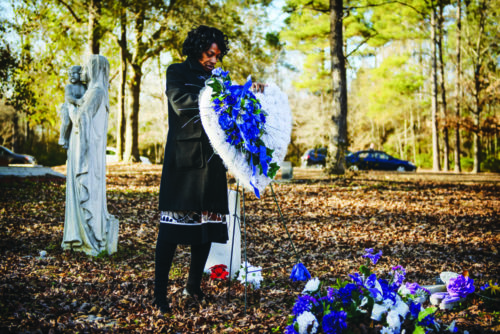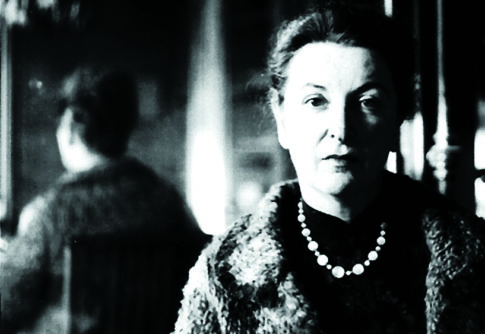
Each month, the Indie Prof reviews a current film in the theater and second film or series available on DVD or instant-streaming service. Follow “Indie Prof” on Facebook for updates about film events and more reviews.
Each month, the Indie Prof reviews a current film in the theater and second film or series available on DVD or instant-streaming service. Follow “Indie Prof” on Facebook for updates about film events and more reviews.
April marks the annual return of the Women+Film Festival to the Sie Film Center. The Festival is part of the year-round Women+Film program, and according to Denver Film Society, “The Women+Film Festival is a six-day showcase of documentaries, narratives and short films celebrating the best in women-centric programming. The Festival includes panel discussions, in-person guests and receptions while highlighting thought-provoking, inspirational stories of women from around the world.” In lieu of the normal column of two reviews, I preview two documentaries from the Festival, and I hope that you will attend either of these screenings or other screenings at this wonderful event. The program can be found online at www.denverfilm.org/women-plus-film-festival/
Always in Season (2019)

Always in Season
There have been over 5000 lynchings of African-Americans in the history of the U.S. (including over 100 in Colorado), the majority of whom were males. When 17-year-old Lennon Lacy, an African-American male, was found hanging from a swing set in rural North Carolina in 2014, it was originally ruled a suicide. His mother was not satisfied with that finding, and she took it upon herself to find the truth—was it really a suicide, or was it another in a long line of lynchings that has plagued America since its birth? This new documentary from director Jacqueline Olive follows Lennon’s mother Claudia as she seeks the truth about her son; with the aid of an NAACP lawyer, Claudia states that she is looking for “justice and closure.” Unfortunately, she gets neither.
The film explores the case of Lennon Lacy from several different perspectives—family, friends, and townspeople—while at the same time uncovering the ugly history of lynchings throughout the country, and particularly in the south. While the family believes there is more to the story than a suicide, others brush it off as a simple case. The town historian (a white male) even states that “everyone gets along here; we don’t have any of those problems.” But the African-Americans in town disagree, and the facts of the case are certainly troubling. The police didn’t start an investigation immediately—it was a long holiday weekend, and they started the following week, making a quick ruling on suicide. The body had markings consistent with a defensive posture. A coroner flatly states that it was not suicide, but rather, murder. And then we find out—late in the film—that Lennon had been seeing an older white woman for some time, and her friend, a white drug dealer, disapproved of the relationship. The drug dealer and his family moved directly after Lacy’s body was found, and they disappeared into thin air. The dealer also had a family member who was a cop in town. There is a lot of suspicion, but nothing has been proven.
The film is mostly straightforward exposition, and it is best, even poetic, when it looks at the historical context of lynching in the town. The quaint small town certainly has its skeletons, and we get the impression that it has many. By the end of the film, neither the family nor we the viewer get any satisfaction or closure. What we do get, however, is a troubling look at our past. And, perhaps, it is not all past.
Plays 7:30 Wednesday, April 10th at the Sie Film Center.
What She Said: The Art of Pauline Kael (2019)

What She Said: The Art of Pauline Kael
Pauline Kael loved to write. And talk. She did both prolifically, and we are all better for it. The acerbic, controversial, and polemical film critic wrote for The New Yorker from the 60s to the 80s, and she is undoubtedly the most influential critic of all time. Roger Ebert may have been better known, but among cinephiles, Kael is the bigger name (even he recognized this). This new documentary chronicles her life and art, much of which is taken from interview footage of her, interspersed with interviews of other critics, actors, and directors. We also hear her writing—voiced by Sarah Jessica Parker—and get a sense for who she was and what she believed. And goodness, those words!
“Carrie is a terrifyingly lyrical thriller…You know you’re being manipulated, but [De Palma] works in such a literal way and with so much candor that you have the pleasure of observing how he affects your susceptibilities even while you’re going into shock.” This was her take on Brian DePalma’s classic horror film, and this was how she wrote: she was insightful, interesting, and most of all, passionate. She loved the movies, and that spilled over into everything she wrote, including her reviews and her books (she wrote over 20 books and was a bestseller several times).
The film touches on some of the high points and low points in her life, but it does gloss over some of the uglier moments—her “fights” with other critics, some of the directors whom she panned, and even accusations of homophobia (not addressed at all). She wasn’t universally loved, but she was universally respected. This particular reviewer isn’t always a fan of her reviews, but she was important, honest, and a wonderful writer. She has my respect.
Plays 7:00PM Saturday, April 13th at the Sie Film Center.
Vincent Piturro, Ph.D., is an associate professor of Cinema Studies at Metropolitan State University of Denver. He can be reached at vpiturro@msudenver.edu.


0 Comments